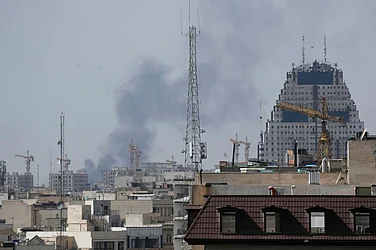In 2017, Prime Minister Narendra Modi had said that the target of his government was to double the farmers’ income by 2022. In 2021, Union Home Minister Amit Shah said that doubling farmers income was the biggest priority of the Narendra Modi government and that the three central farm laws would ensure manifold hikes in their earnings. Five years down the line, the income of farmers has seen a “marginal rise”, far from “doubling”.
“When say doubling of farmers’ income, what we mean is the real income, which is factored by inflation. As per the data by NSSO (National Sample Survey Organisation), in 2013-14, the real income of farmers was estimated at Rs 6,426. In its latest survey in 2021, the figures have reached Rs 10,218. So that would be a 59 per cent increase in five years,” said Ramandeep Singh Mann, a farmer activist from Punjab, while speaking to Outlook.
Jharkhanday Singh Yadav, a farmer from Ghazipur, however, believes that although there has been a ‘marginal rise’ in the income, the high inflation rate has levelled their profits back to 2017 levels.
“Rising prices of petrol diesel have also increased the cost of farming-related activities. The 2,000 rupees government allowance to farmers is not very beneficial as it is not even able to cover our water and electricity costs,” he said to Outlook, adding, “Electricity bill has increased double-fold in the last couple of years along with the cost of fertilizers."
In 2017, while addressing the gathering at the inaugural event of the World Food India 2017, Modi underlined that the farmers were prime to the efforts in food processing and that the government launched the Pradhan Mantri Kisan Sampada Yojana to create a world-class food processing infrastructure.
He said, “We have a stated target of doubling the farmers' income within five years. We launched the Pradhan Mantri Kisan Sampada Yojana to create a world-class food processing infrastructure. This will leverage an investment of USD 5 billion, benefit 2 million farmers and create more than half a million jobs over the next three years.”
Earlier, in April 2016, the government had constituted an inter-ministerial committee to examine issues relating to the doubling of farmers income. The Committee submitted its report to the government in September 2018 with the strategy for doubling farmers income by 2022. The Committee said farm income has to grow at 10.4 per cent, at constant base-year prices, to achieve the target.
“But little has changed on the ground. Like his promise of 15 lakhs jobs, it’s another gimmick of playing to the gallery,” said Singh.
In May 2016, Niti Aayog Member Ramesh Chand said the target of doubling farmers' income by 2022 will not be fulfilled if the three new farm laws are not implemented immediately, adding that the protesting farm unions should consider the government's offer of discussing the legislation clause by clause.
According to Ramesh, another farmer from the Ghazipur, the government's policy of providing 3 months ration to the poor is increasing the demand, therefore, there is more security on the harvest now. He also thinks that the implementation of farm laws would have increased the income of farmers.
But Yadav said, “Farms laws or no farm laws, the cartel of sahukars (lenders) remains the same.”
He added, “In the mandis, government officials falsely cite the low quality of our products and pay us lesser amounts than the MSP. If farm laws were implemented, the small farmers who are only able to sell four to five sacks would anyway have to resort to sahukars who will pay us less. The companies can't directly approach small farmers, therefore the sahukar cartel would have thrived. On the other hand, if we question the government officials in the mandi, they won't allow us our turns and we would have to approach sahukars therefore, we have to play by their rules.”
However, after one year of farmers’ protest, the government repealed the three contentious laws in November 2021. Sending out a letter to protesting farmers and farmers’ union, on December 9, the government had assured that a committee would be formed to incorporate the inclusion of MSP and other demands.
“It’s February, but nothing of this sort has been done. During our last meeting of the Samyukt Kisan Morcha (SKM), I had submitted the list of names of farmers’ representatives in the committee, but we are yet to hear back from them. Hence, the protests for MSP would still be one here and there,” said Ramandeep.
Farmers and activists allege that there is a lot of corruption when it comes to implementing laws and regulations in increasing farmers’ income, which still seems like a road far away.






















